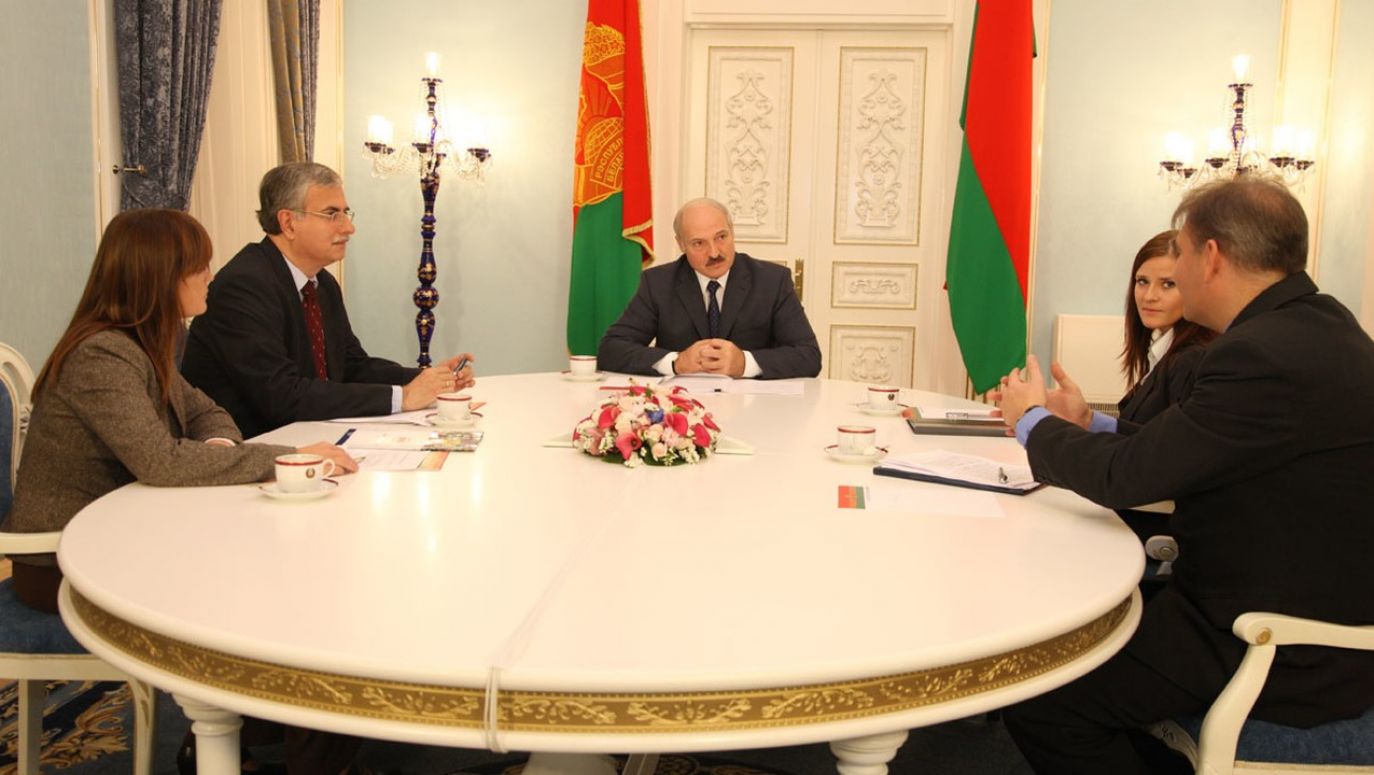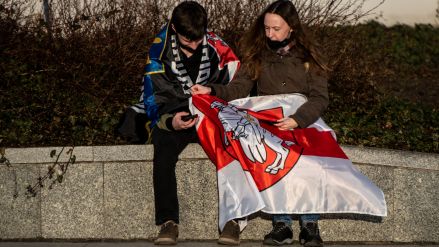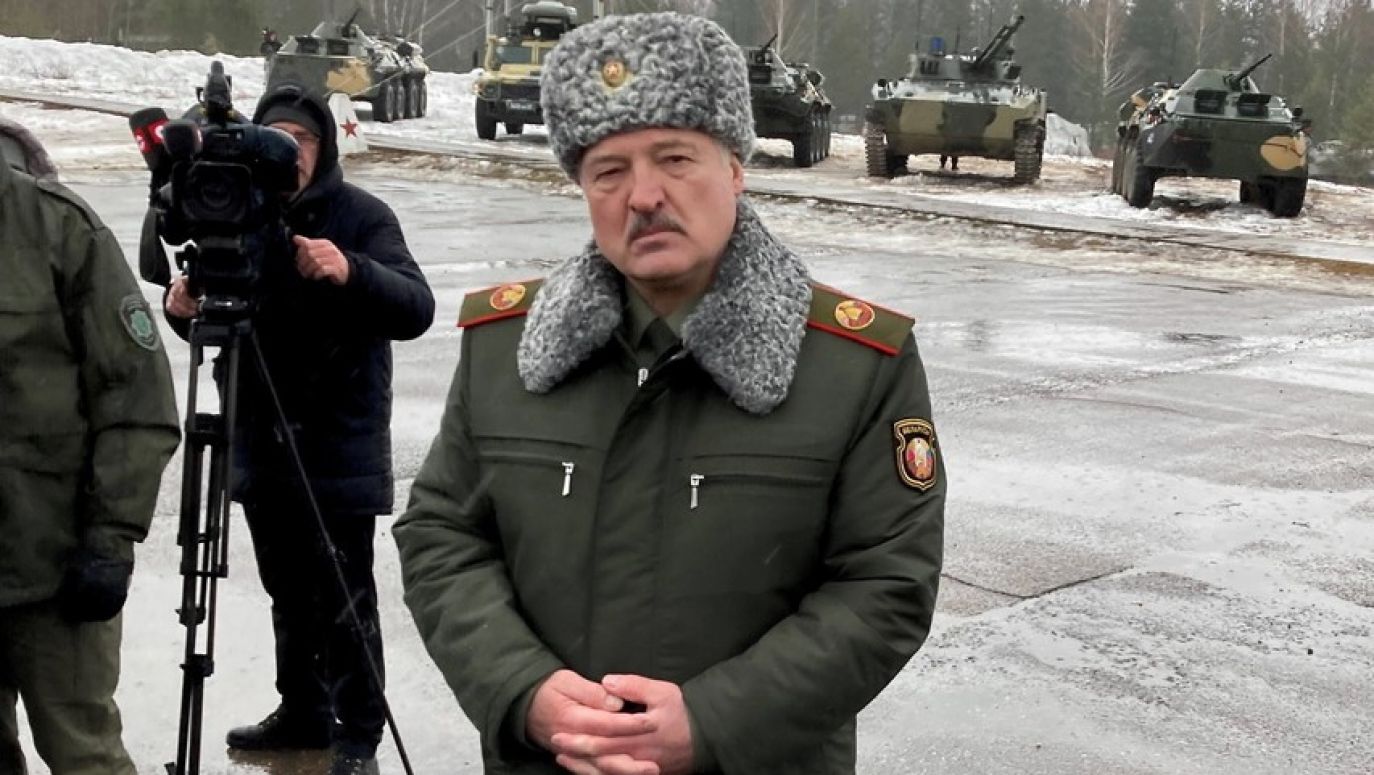Eight members of the council are appointed by the president, and the others are elected, or rather appointed, by the oblast and Minsk councils, and thus also appointed by the head of state. Out of 64 members (traditionally called “senators”), 46 are non-partisan, 17 are representatives of the communist party licensed by the authorities. There is also one representative of the “liberal democrats”, i.e. populist party modelled on the group founded in Russia by Vladimir Zhirinovsky. The chairperson of the council is Natalia Kachanava. She graduated from the polytechnic in Novopolotsk and worked in institutions managing public housing in neighbouring Polotsk; she was also the mayor of Novopolotsk. In 2014, she became deputy prime minister, and in 2016 – head of the Presidential Administration. Three years later, she took over the leadership of the Council of the Republic. In 2020, she was sanctioned by the European Union and other countries, including Great Britain, and therefore has no right to enter their territory. If she took over the helm from Lukashenka, then the elections would have to be held within 70 days.
A special part of Article 88 provides for what happens if the head of state is killed “as a result of an attempt on his life, an act of terrorism or armed aggression”. Then the importance of the already very significant Security Council, today headed by Lukashenka, will be raised. Its meetings would be chaired by the head of the Council of the Republic; The Council then introduces a state of emergency or martial law and takes over the leadership of the state. These are completely new rules – apparently the dictator considered such a situation very likely. A state of emergency may last a month, but the martial law is indefinite, and while it lasts, civil rights are severely restricted.
It is obvious that Lukashenka would like his son, Viktor, to succeed him. He is 48 years old and already performs important functions – he is a member of the aforementioned Security Council and a reserve general. He has also been sanctioned by the EU and other countries. Only Viktor could ensure the continuity of power.
But Lukashenka himself said in 2021 that he had other candidates. “There is only one way to seize power: elections. People have chosen. Period! No children, no relatives. I swear to you something like this will never happen. My children will not be presidents after me... – he said. And he pointed out Yuri Karayev, a militia general, former head of the Ministry of the Interior, of Ossetian nationality, as well as the former health minister, currently in charge of the Grodno region, Uladzimir Karanik (he is also on the list of persons subject to EU sanctions).
Of course, Russia may want to push through its man. Would it be prime minister Raman Halouchenka, a graduate of the Moscow State Institute of International Relations (MGiMO), former ambassador to Abu Dhabi and head of the State Military-Industrial Committee? Hard to say.
 SIGN UP TO OUR PAGE
SIGN UP TO OUR PAGE

Sviatlana Tsikhanouskaya, quoted by the Belarusian portal Motolko Help, said that for years many Belarusians had at least once wondered what would happen if Lukashenka died. – And of course, champagne and a celebration for the whole country immediately come to mind. But in fact, right after the days of joy, there will be a difficult time. When the whole would have to make a big effort to start rebuilding everything that has been destroyed over the years, and most importantly, to prevent the arrival of another dictator or Russian protégé and preserve independence – she stressed.
As she pointed out, a regular battle will begin in the ranks of Lukashenka’s “elite”. – Their biggest problem is that they have relied on Lukashenka for many years. They owe their positions to him. Once he is gone, the whole influence of this “elite” will be very fragile – and their ambitions are huge – she added. Surely, she is right. Many are preparing for the Belarusian president’s possible death: his men, the opposition, and Russia. It is vital that we too have an understanding of what to do in the new circumstances.
– Piotr Kościński
– Translated by Dominik Szczęsny-Kostanecki
TVP WEEKLY. Editorial team and jornalists




 SIGN UP TO OUR PAGE
SIGN UP TO OUR PAGE
 Sviatlana Tsikhanouskaya, quoted by the Belarusian portal Motolko Help, said that for years many Belarusians had at least once wondered what would happen if Lukashenka died. – And of course, champagne and a celebration for the whole country immediately come to mind. But in fact, right after the days of joy, there will be a difficult time. When the whole would have to make a big effort to start rebuilding everything that has been destroyed over the years, and most importantly, to prevent the arrival of another dictator or Russian protégé and preserve independence – she stressed.
Sviatlana Tsikhanouskaya, quoted by the Belarusian portal Motolko Help, said that for years many Belarusians had at least once wondered what would happen if Lukashenka died. – And of course, champagne and a celebration for the whole country immediately come to mind. But in fact, right after the days of joy, there will be a difficult time. When the whole would have to make a big effort to start rebuilding everything that has been destroyed over the years, and most importantly, to prevent the arrival of another dictator or Russian protégé and preserve independence – she stressed.



